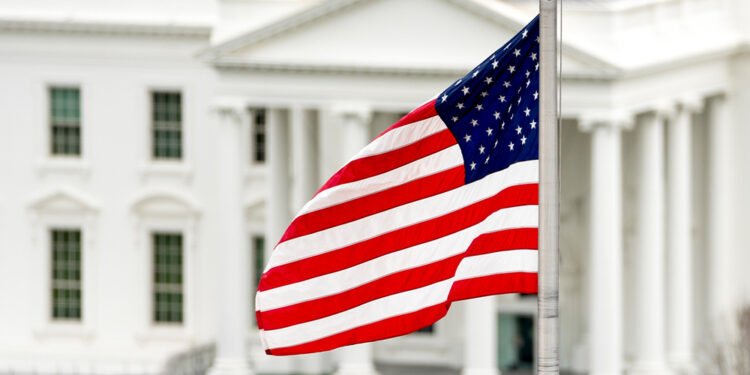No Evidence USAID Funds Boko Haram, Mills US Envoy Counters Lawmaker
The United States Ambassador to Nigeria, Richard Mills, asserted that there is no evidence linking the United States Agency for International Development (USAID) to the funding of Boko Haram or any terrorist organizations.
He stated this after a meeting with the Nigeria Governors Forum in Abuja on Wednesday night, emphasising that no country condemns the violence perpetrated by Boko Haram more vehemently than the United States.
He assured that if any evidence emerges, the U.S. government will collaborate with the Nigerian government to investigate it.
On February 13, U.S. Congressman Scott Perry alleged that the United States Agency for International Development (USAID) has been funding terrorist groups, including Boko Haram. Perry, a Republican from Pennsylvania, made the claim during a hearing of the Subcommittee on Delivering on Government Efficiency, which focused on alleged misuse of taxpayer funds. He accused USAID of channeling $697 million annually to groups such as Boko Haram, ISIS, and Al-Qaeda.
Boko Haram, founded in 2002 by Mohammed Yusuf, has caused widespread devastation in Nigeria, including thousands of deaths, displacement of families, and destruction of property worth billions of Naira. Perry’s remarks have sparked significant controversy, prompting both U.S. and Nigerian authorities to investigate.
The Nigerian Senate has summoned top security officials—including National Security Adviser Nuhu Ribadu and the heads of the National Intelligence Agency (NIA) and Defence Intelligence Agency (DIA)—to address these allegations in a closed-door session.
Meanwhile, U.S. Ambassador to Nigeria Richard Mills has dismissed the claims, stating there is no evidence that USAID funds are being diverted to Boko Haram or any terrorist group.
Mills reaffirmed the U.S.’s commitment to working with Nigeria to combat terrorism and ensure proper use of American aid.
In response to inquiries, Mills stressed that the United States enforces stringent measures to ensure that USAID and other forms of American assistance do not fall into the hands of terrorist organizations like Boko Haram.
According to the American Envoy, “Let me be clear—there is no friend of Nigeria stronger in condemning Boko Haram’s violence and disregard for human life than the United States. We have designated Boko Haram as a foreign terrorist organisation since 2013, blocking the group from transferring assets to the US and allowing us to arrest and seize its members.
“We cooperate in investigations with the Nigerian government. I can assure you that we have strict policies and procedures to ensure that USAID funding or any other US assistance, whether from USAID, the Department of Defence, or the State Department, is not diverted to terrorist groups like Boko Haram.
“There is absolutely no evidence of such diversion, and if we ever had evidence that any programme funding was being misused by Boko Haram, we would immediately investigate it with our Nigerian partners.
“So, when it comes to Boko Haram, the United States stands with Nigeria in wanting to rid this country of the scourge that this organisation represents.”
The U.S. Ambassador clarified that the Trump administration’s 90-day pause on foreign aid was not a cut, but rather a strategic move intended to enhance the effectiveness of the assistance. This temporary suspension aimed to allow for a comprehensive review of existing programs and the development of improved strategies.
He explained, “No assistance has been cut yet, and no decisions have been made about the future of our assistance. In fact, US Secretary of State, Marco Rubio, has said that this is not about ending foreign assistance to our partners like Nigeria. It’s about making our assistance more effective and aligning it with US government policies and interests.
“That’s what this 90-day pause is for. However, there are waivers for life-saving assistance, such as support for HIV patients, maternal and child nutrition, and internally displaced people. So that continues. In 90 days, we will know where we stand.”
The U.S. Ambassador to Nigeria shared insights on discussions held with the 36 state governors, highlighting the embassy’s vision for the future of U.S.-Nigerian relations.
These priorities include enhancing the business climate to boost trade and investment between the two nations, increasing transparency and accountability in Nigeria while combating corruption, and fostering greater engagement at the state and local government levels.
Additionally, he emphasized the importance of sustaining U.S. health care programs in Nigeria, aiming to ensure their successful transition to Nigerian management as they continue to address critical health issues.
He stated, “I explained to them that we are going to focus on four key priorities in the coming years. The first is improving the business environment to increase trade and investment between the United States and Nigeria.
“Second, a renewed focus on improving transparency and accountability in Nigeria, fighting corruption, and empowering Nigerian voices advocating for more transparency.
“Third, we want to be more engaged at the subnational level, at the state level, and with local governing authorities. I believe the embassy needs to engage more in this area as we develop our programmes and assistance.
“Lastly, we discussed our health care programmes, which are a large part of US assistance to Nigeria. As these programmes succeed—such as reducing HIV cases and eradicating polio—we want to ensure their sustainability and transition them to the Nigerian government at the federal and state levels.”







